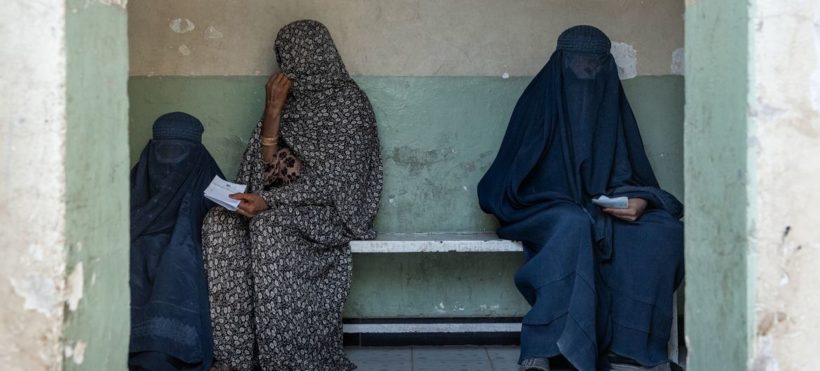The Taliban have decreed the compulsory wearing of the burqa in public places for all women and girls in Afghanistan and that all women working with the administration who do not wear the garment will be dismissed. This is in addition to a series of measures that have restricted movement, access to education and the rights of Afghan women and girls in general.
The UN denounced Monday the latest order announced by the Taliban regime in Afghanistan, which among other things requires the wearing of the burqa in all public places, and said it represents an escalation of restrictions against women and girls and a further violation of their rights.
“I am deeply concerned by the Taliban’s announcement that all women must cover their faces in public, that women should only leave their homes in case of need, and that violations of this directive will result in punishment of their male relatives,” UN Women Executive Director Sima Bahous said in a statement.
The UN gender equality agency stressed that freedom of movement is a fundamental human right and a prerequisite for women to exercise their other rights and participate fully in society.
“The Taliban’s latest directive is a further escalation of restrictions on women and girls, including the inability to return to work and the inability to continue their education,” Bahous lamented in response to the new order from the Kabul authorities.
On Saturday, the Taliban decreed the compulsory wearing of the burqa in public places for all women and girls in Afghanistan and that all women working with the administration who do not wear the garment will be dismissed.
Bahous recalled that these restrictions are in addition to many others since the radicals seized power, such as the exclusion of girls from schools beyond the sixth grade or the restrictions on women driving, taking public transport or simply moving from one place to another.
These measures, she explained, are increasingly limiting women’s ability to earn a living, access health care and education, seek protection, escape violence and exercise their rights.
“These increasing violations of women’s and girls’ rights are costing Afghanistan in many ways and are having an impact on its social and economic growth,” she said, citing studies indicating that labour restrictions against women have had an immediate cost of up to $1 billion or 5% of the Afghan economy.
According to Bahous, these latest restrictions will make recovery more difficult or even impossible in a country where more than half of the population requires humanitarian assistance.
UN Women “urgently” called on the Taliban to comply with their human rights obligations and the “immediate restoration of independent freedom of movement for women and girls and their rights to work and education at the highest level”.






